
Family Farms – Not Factory Farms
As well as our own farm, Pipers Farm HQ, we work directly with 45 small-scale, family farms based around the country.
Our business is focused entirely on preserving and supporting small-scale family farms; finding a way to allow them to thrive without having to grow or become increasingly industrialised in their operation. By focusing on each individual farm and the opportunities their land presents, we are able to support small scale farmers to diversify their operations and provide a guaranteed and simple route to market. It’s proof that when it comes to farming, big isn’t necessarily better.
We believe small-scale mixed farming is the most sustainable way to produce food. For over 30 years, we have built strong relationships with our farmers based on a handshake and a belief to produce food the right way, in harmony with nature.
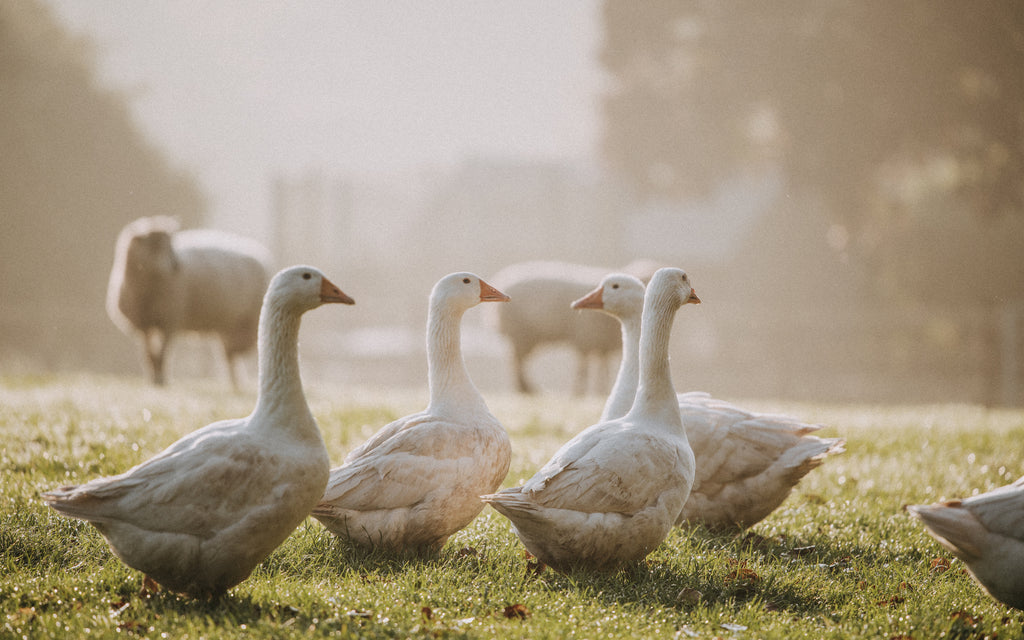
Sustainable Community
For us, true sustainability also includes building sustainable communities. Proper sustainable farming needs to have an economic benefit to the community. It is no good having farmers and workers unable to make a living through food production as this only leads to unfair pressure on principles.
We work with our farmers to agree upfront, fair pricing that recognises the true value of the job they do.
We always buy what we committed to buying.
We are in it for the longterm.
By supporting Pipers Farm your money is going back into the community. It is helping us ensure our countryside is protected, it is funding projects such as converting to renewable energy on our farms, and importantly it is securing a future for small-scale family farms.

Native Breeds
We have specifically chosen breeds that are native to the UK. We do not rear Red Ruby cattle because they are fashionable, we grow this traditional breed because it is used to the terrain and climate here in Devon. Many of the breeds we work with are on the Rare Breeds Society Endangered List and if we do not support them, they will be lost forever. It is of paramount importance to us that our cultural identity is not lost through the homogenisation of the food chain.
Native Breeds, in many cases have adapted over hundreds of years to suit our climate and available local food source, making them a resilient resource that can boost biodiversity.
Our Red Rubies can digest the rough Exmoor grass and convert it into protein with zero input. This allows land to be farmed and communities to be sustained where otherwise there would be very little resource available. Turning a rugged and difficult land into an abundant rich landscape that produces nourishing, healthy, high welfare food that simultaneously becomes a haven for wildlife.
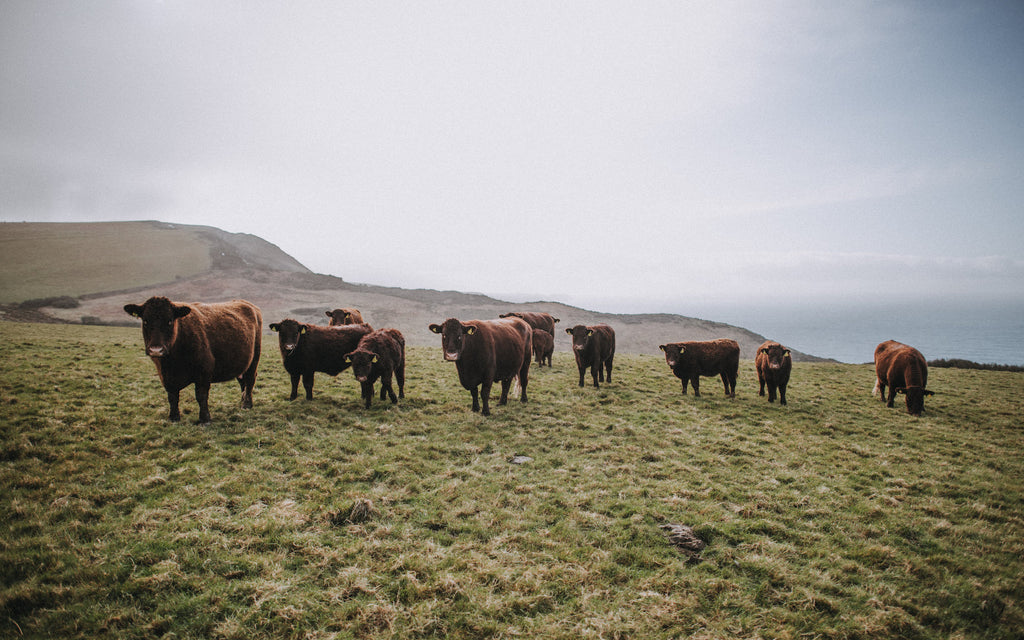
Permanent Pasture
Grassland forms a vital part of our countryside. For centuries it has been the principal food source for cattle and sheep. Fields of just grass provide all nutritional components an animal needs. Our fields contain a variety of other plant species including herbs, wildflowers, and clovers. Rich in essential vitamins and minerals our grasses not only provide incredible healthy nutrition but also support a diverse range of insects and wildlife.
We do not believe you have to cut down acres of rainforest, grow miles of land for grain, we simply utilise what is in abundance right on our doorstep. Our ruminant animals only ever eat a diet of 100% pure natural grass, all grown on our farms.
Our chicken and pigs, although not ruminants, also eat pasture as a proportion of their diet along with locally sourced crops.
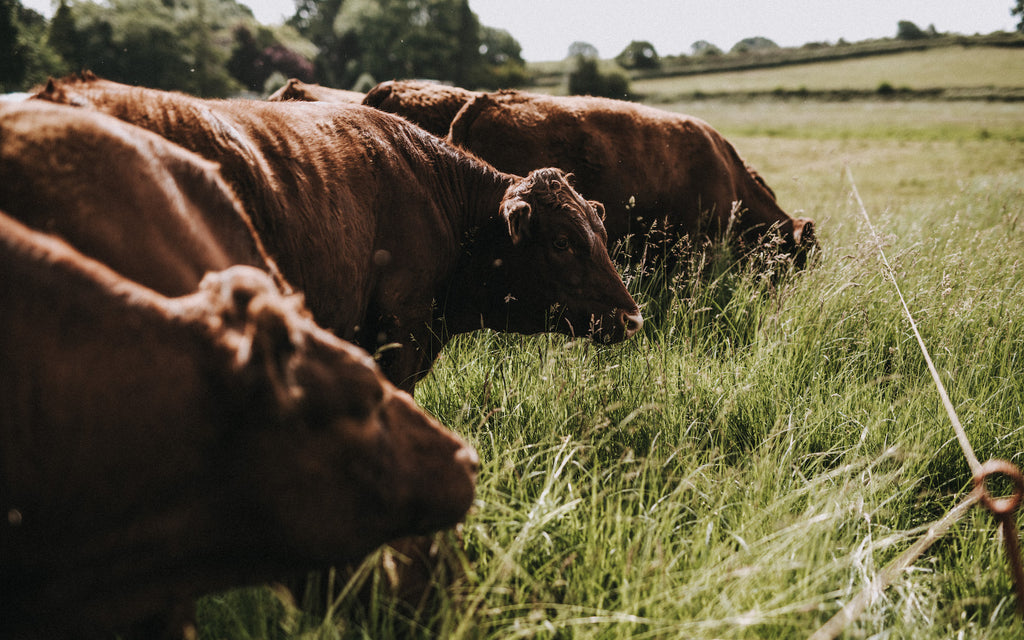
Regenerative Farming - Farming in Harmony with Nature
There is an exciting movement of ‘Regenerative’ farmers who are coming together and are working directly with conservationist and academics to fully understand and harness the true value of sustainable farming.
Nature is by far the greatest resource available to mankind. Regenerative farmers harness the power of nature to produce nutritionally valuable food with minimal input.
True 'regenerative' or 'agroecological' farming is an approach to food and farming systems that rejects pesticides, artificial fertilizers and chemical inputs, and instead focusses on regenerating topsoil, increasing biodiversity, improving water cycles and increasing resilience to climate fluctuation to strengthen the health and vitality of farming communities.
Regenerative farming is based on techniques and thinking that integrates organic farming, permaculture, agroforestry, restoration ecology, and holistic management.
Above all else we believe passionately about farming in harmony with nature.
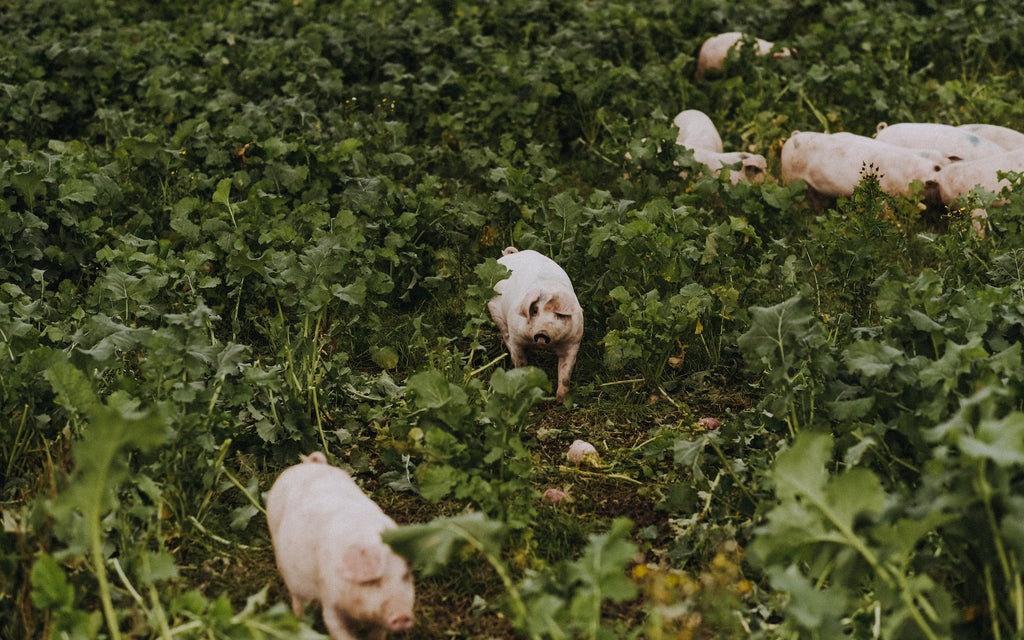
Slow Food
One of our fundamental principles of farming the Pipers Farm way is to grow livestock slowly. By selecting the right breeds, with the right diet, we let animals grow at a natural pace. This is of paramount importance to the health and welfare of our stock and it also ensures an animal has developed a proper bone structure and texture in the meat – resulting in real eating quality.
We are also passionate about the Slow Food movement, a grassroots organisation that is the alternative to fast food. Slow Food strives to preserve traditional and regional cuisine and encourages farming characteristics in line with the local ecosystem. The Slow Food motto is "Good, clean and fair" - a sentiment we couldn’t agree more with.
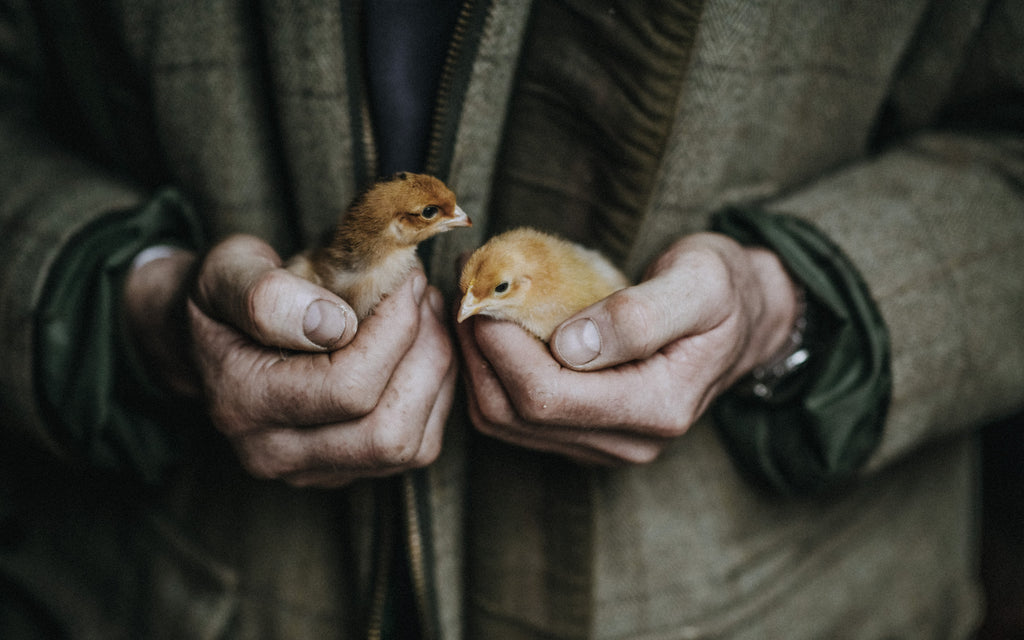
Eat Less Meat
Sounds strange, doesn’t it, coming from farmers and butchers?
We believe that the way consumption of meat has changed over the last 50 to 100 years is unsustainable. In the past, when an animal was raised for slaughter, the whole animal would be utilised, from fats turned into candles, skins and coats into clothing and meat for the table from trotter to snout. In such a short space of time we have lost our respect for the life of the animal and instead meat has become a homogenised commodity, a ‘cheap’ ingredient used as a filler in convenance food, and as such consumption has increased, food waste has increased and welfare has decreased.
We believe that when it comes to meat it is vital to eat meat produced in harmony with nature, with respect for the animal and respect for the planet, if this means, due to affordability, that you eat one quality meat meal a week instead of 7 meat meals using factory farmed meat, the better it is for your health, the health of the planet and the health of those animals.
We believe that when we do eat meat it is important to ensure it has been produced in a way that has respect for the animal, respect for the farmer and respect for the landscape.
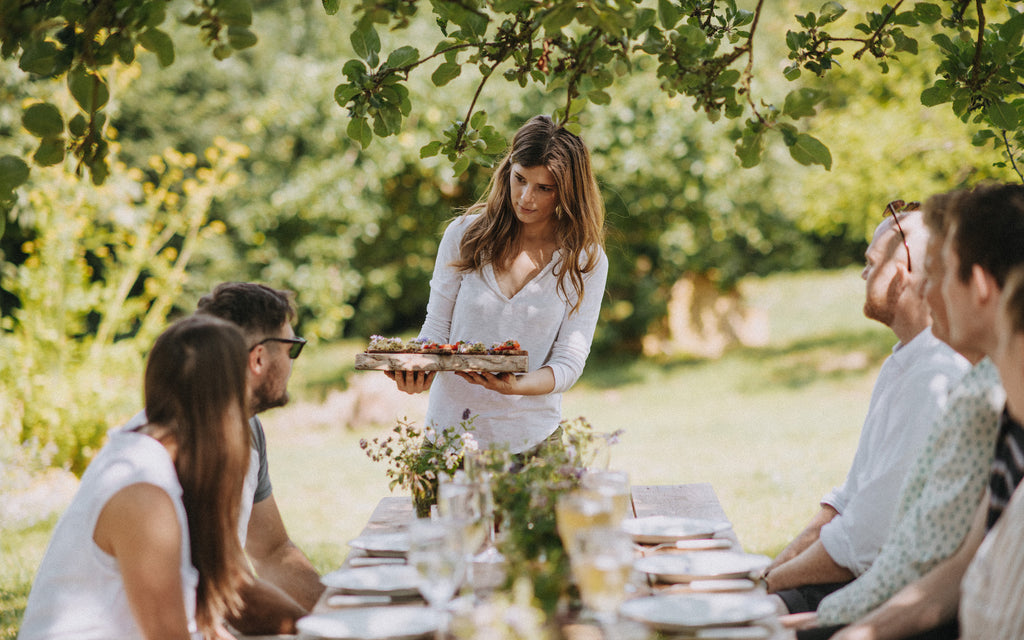
Food Waste
Making sure we have enough food for the future and looking after our planet for the next generation is so important to us as a business. Reducing food waste is a key part of preserving a healthy and sustainable countryside.
We are a zero to landfill business. Our waste is sorted into recycling materials and matter for the local biodigester that is turned into energy and then compost to feed the land.
We utilise the whole carcass from nose to tail and ensure nothing is ever wasted. We encourage our customers to try something a little different, to think outside the box and realise the true value of the food you are eating.